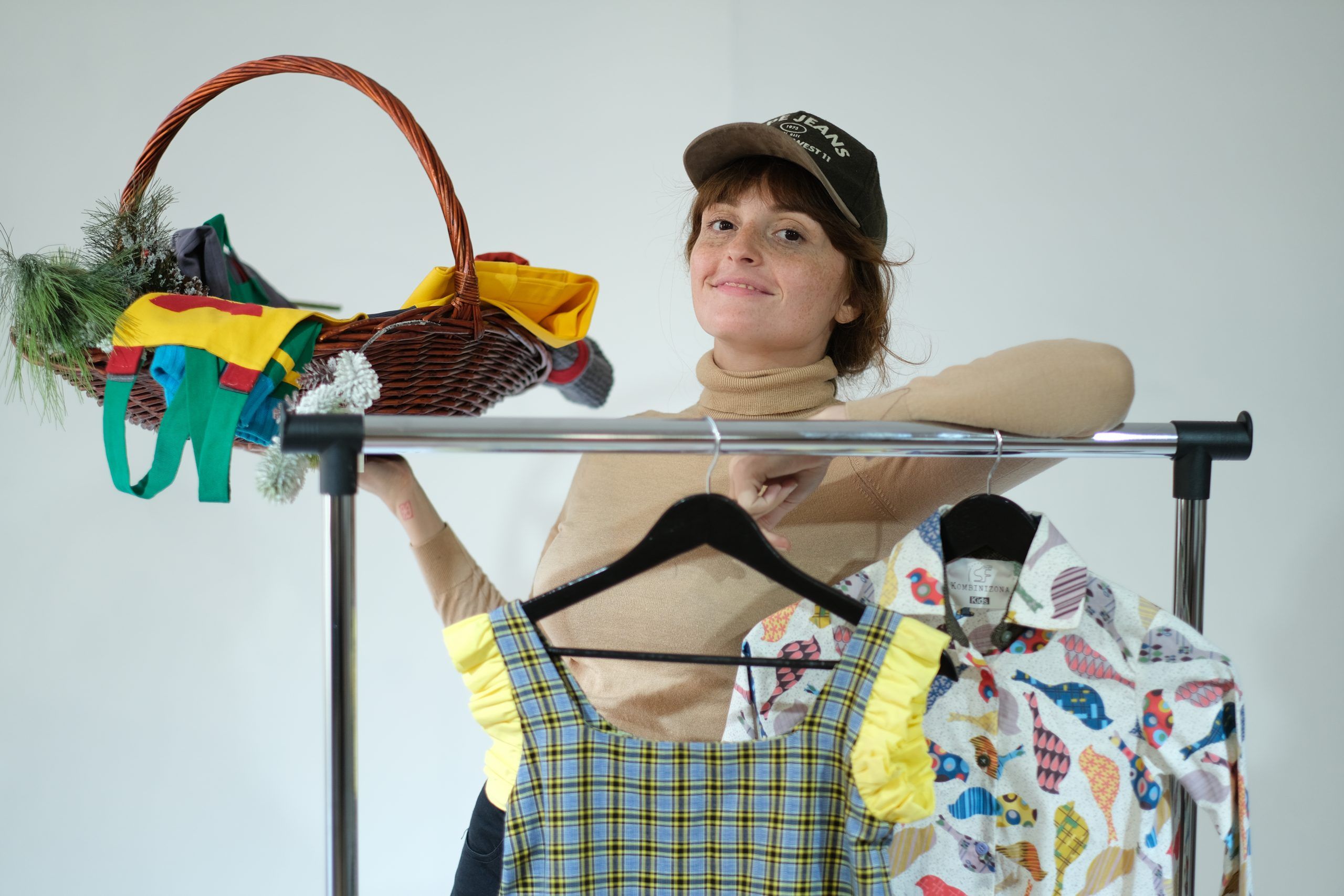
EU and GIZ support helps local social enterprise increase production and employment despite Covid-19
The history of the social enterprise Kombinizona (“Overalls”) began with a 10-year action plan, a borrowed sewing machine and a unique concept of a small showroom. The innovative sewing factory ISF Georgia’s first multi-brand social enterprise produces therapeutic designer clothes based on the research of ‘Colour Acceptance in Georgia’.
In the first year, the collection sold in three weeks, and positive customer feedback convinced the founders that they were dealing with a special phenomenon: “We have created a functionally different and unique apparel brand with a potential to reach international market. A lobbyist for equality, inclusiveness and happiness with high social responsibility – this is how we saw our brand and the strange sketches of my childhood,” says Gano Melitauri, Kombinizona founder.
Since its establishment, the brand has had a clearly defined mission – to introduce inclusion in the fashion industry and raise awareness about people with disabilities, pregnant women and adolescents to support functional clothing, freethinking and moral values. The aim of Kombinizona is to help people better express and realize themselves, be motivated, and colour their daily life with novelties and colourful therapeutic clothes, which is clearly expressed in their slogan #colourarchitectureforhappiness.
The COVID-19 pandemic challenged many businesses, including Kobminezona. Yet, despite the crisis, and with the EU support, the multi-brand adaptive apparel company not only could create jobs but also increased the number of employed people with disabilities. Today, the enterprise employs 60-70 people, half of them PWD.
With the help of the EU4Business and the German government’s Clusters4Development project, Kombinizona bought 19 sewing machines and expanded their production capacity. The Clusters4Development was funded by the EU and the German Federal Ministry for Economic Cooperation and Development (BMZ) a year ago and is implemented by GIZ.
Kombinizona crossed paths with the EU when ISF Georgia had to launch the second protective clothing brand “Alikapi” in extreme conditions, to help the company overcome the crisis. To keep their jobs, the team took the machines home and, in the challenging times and at high costs, started to develop a new important product line for the country. In parallel, g the charity campaign #1foryou1forme was launched and in support of #stayhome campaign, Kombinizona let women employees work from home. It also offered PPE to companies, including facemasks, robes, and overalls at affordable prices.
“We gave 30% of the earned money to charity and distributed tens of thousands of free masks to PWDs and outpatient clinics. Unfortunately, due to the increased demand, our equipment was no longer sufficient. It was then that the EU-GIZ Clusters4Development project came in, helping SMEs overcome the Covid-19 crisis. The support helped us in procuring equipment, so the production would not stop, and we employed people, created more PPE, distributed lots of free masks and ultimately contributed to helping the country overcome the crisis,” says Gano Melitauri.
According to the founders, cooperation with the EU-GIZ project became a critical springboard, because the equipment they received as a gift was used to the full, and they could work in day and night shifts, which increased productivity and gave the company the luxury of adding new machines. These achievements help the company to contribute to the increase of employment in the country and improved quality of life for PWDs.
The goal of the EU-GIZ Clusters4Development project is to support small and medium enterprises via business clustering. During the pandemic, the project had to somewhat revisit its action plans to help partner entrepreneurs meet the new challenges. Their support included both consultations and financial assistance to buy necessary equipment, which helped companies increase their production capacity and meet the high demand for their products because of the crisis.
The project helped partner apparel producer companies to come together into a cluster named Georgian Apparel and Fashion Association (GAFA). According to Thea Kentchadze, project communications expert at GIZ, Kombinizona, like other potential members of the Georgian apparel cluster, was selected based on a market assessment conducted by the project. ‘The GAFA initiative group today unites more than 20 members. These are apparel companies, fashion designers, ateliers. They developed the cluster’s vision and mission. Members of the initiative group share common interests, which include promoting sustainable production, access to innovation, developing export opportunities, and introducing digital technologies (including e-commerce). The cluster plans its activities and promotes cooperation between its members in these areas, which would ultimately serve the purpose of creating a solid reputation of the Georgian apparel and fashion industry, both domestically and abroad’.
GAFA positions itself as a supporter and enhancer of high quality, environmentally friendly and sustainable apparel and textiles, and Kombinizona is actively involved in GAFA’s activities. Gano Melitauri is the Co-Chair of GAFA Working Group “Business Process Outsourcing and Workforce” and works on employee capacity building and training, labour rights and working conditions, workflow optimization and efficiency.



